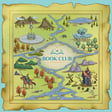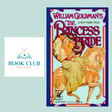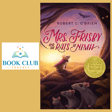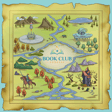
Jurassic Park by Michael Crichton Book Club
In this special bonus episode of the Book Club Podcast, Carly, joined by Andrene and Joel from the Rewind Rewatch Podcast, delves into Michael Crichton's Jurassic Park. They explore themes of genetic engineering, human arrogance, and scientific discovery, discussing character developments such as Hammond's moral irresponsibility, Nedry's sabotage, and Malcolm's philosophical insights. The episode examines the narrative role of Lex and Tim, the depiction of female characters, and the contrast between the book and the movie. The hosts reflect on the story's relevance to contemporary issues like technological progress and environmental exploitation. They also highlight the 1993 film's enduring visual impact and influence on millennials, wrapping up with recommendations for Crichton's sequel, The Lost World.
Listen to the Rewind Rewatch episode on the movie Jurassic Park on Apple Podcasts.
Subscribe to our email newsletter on Substack: https://bookclubpod.com/ and be sure to follow us on Twitter and Threads!
Timestamps of conversation topics:
00:00 Life Finds a Way
00:13 Welcome to the Book Club Podcast
00:31 First Impressions of Jurassic Park
03:02 Diving into the Plot
10:07 Hammond's Delusions and Grandchildren
14:23 Character Dynamics and Development
25:58 The Arrogance of Humans
39:59 Living Systems and Chaos Theory
41:32 Automation and Nedry's Role
43:08 Nedry's Betrayal and Consequences
47:40 Hammond's Hubris and Park's Flaws
50:33 Children in Jurassic Park
53:39 Millennial Nostalgia and Connection
57:35 Female Characters in Jurassic Park
01:02:42 Modern Reflections and Genetic Power
01:08:39 Impact of the Movie on Millennials
01:14:33 Final Thoughts on Jurassic Park








